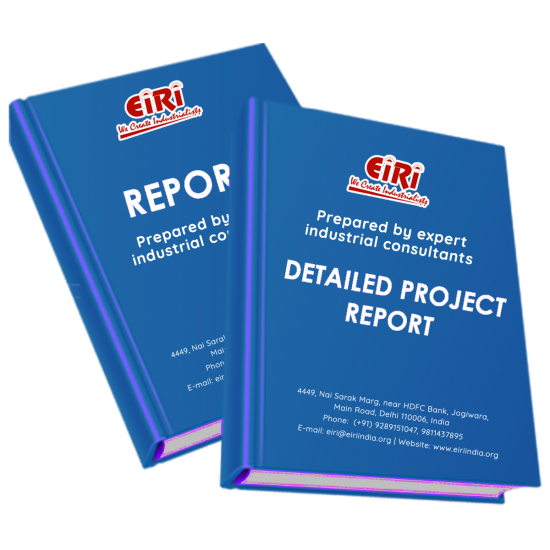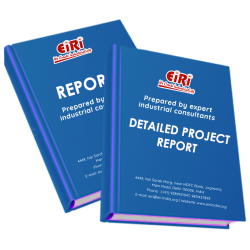Detailed Project Report on manufacturing silk yarn from raw silk cocoon

- More than 40 years of experience
- Managed by expert industrial consultants
- ISO 9001-2015 Certified
- Registered under MSME, UAM No: DL01E0012000
- 24/5 Research Support
Get your quesries resolved from an industry expert. Ask your queries before report or book purchase. - Custom Research Service
Speak to the our consultant to design an exclusive study to serve your research needs. - Quality Assurance
All reports are prepared by highly qualified consultants & verified by a panel of experts. - Information Security
Your personal & confidential information is safe & secure.
MANUFACTURING SILK YARN FROM RAW SILK COCOON
[CODE NO.3879]
Silk is the most prized of all the textile fibres. It is the continuous filament exuded by silk worm at the end of its larval period through a small opening under the jaws called the spinneret. The silk worm generates within itself a protein like viscons substance (fibroin) which on passing through two serefic glands near the mouth forms two separate fine filaments (brins) and these are cemented together in the spinneret into a single thread (save) by a gummy substance (sericin or silk gum). The extruded thread is used by the silkworm to spin a Cocoon, a protective oxal shell By a continuous motion of its head in arcs of circles the worms adds layer after layer of silk thread around itself in the form of figuse eight in this may a continuous thread is spcin, the web grows closer and the Cocoon is completed in 2-3 days, after which the enclosed silkworm passed from the Caterpillar stage into an inert Chrysalis or pupa.
For utilizing this thread, the Cocoon is steamed or heated by hot air to kill the inside pupa, soaked in hot water to soften the outer layer brushed to remove the outer floss and the thread recovered from the Cocoon by unwinding (reeling). The fibre so obtained constitutes the raw silk of Commerce.
The his tory of the culture of silk according to a Chinese lagend dates back to 2640 B.C when the Empress Si-Lang-Chi of China learned how to rear the silkworm and to unwind the filament that that formed their Cocoona. The Chinese monopolized the art of Seri Culture-reering of silk worm for Cocoon production-for over 3000 year after which the silk Culture spread clandestinely to Japan and India in the beginning of Christian Era. Between the ganges and Brahmaputra, the Indian silk industry soon become established. From India, it is believed to have gradually spread throughout central Asia to Persia Turkey and Arabia. In the 8th Century, it was carried into the countries influenced by the Moorish rule including Spain, Sicily and the African Cost.
COST ESTIMATION
Plant Capacity 140.00 Kg./day
Land & Building (1500 sq.mt.) Rs. 1.96 Cr
Plant & Machinery Rs. 2.30 Cr
Working Capital for 1 Month Rs. 95.85 Lacs
Total Capital Investment Rs. 5.39 Cr
Rate of Return 27%
Break Even Point 57%
INTRODUCTION
PROPERTIES OF RAW SILK FIBRE
SILK DEGUMMED
USES OR APPLICATION
GRADING OF RAW SILK
DISEASES OF SILK WORMS & PREVENTIVE MEASURE
SERICULTURE
B.I.S. SPECIFICATION
MARKET OVERVIEW OF SILK IN INDIA
EXPORT EARNINGS FROM SILK DURING 2016-17 TO 2018-19
COUNTRY WISE EXPORT EARNINGS FROM SILK GOODS DURING
2016-17 TO 2018-19
RAW MATERIALS
MANUFACTURING PROCESS OF SILK YARN FROM RAW SILK CACOON
SORTING COCOON
SOFTENING THE SERICIN
REELING
THROWING
PROCESS FLOW DIAGRAM
STEP IN SILK YARN MAKING
1. HARVESTING
2. STIFLING & SORTING
3. BOILING
4. DEFLOSSING
5. REELING
6. TWISTING & DYING
DETAILED PROCESS TO MANUFACTURE SILK YARN
CULTIVATION OF COCOONS:
BOILING OF COCOONS
FILATURE OPERATIONS:
1. SORTING COCOONS:
2. SOFTENING THE SERICIN:
3. REELING THE FILAMENT:
THROWING:
DEGUMMING OF THROWN SILK:
SERICULTURE
BREEDING SILKWORMS
FEEDING THE LARVA
SPINNING THE COCOON
STOVING THE CHRYSALIS
THE FILATURE
SORTING AND SOFTENING THE COCOONS
REELING THE FILAMENT
PACKAGING THE SKEINS
FORMING SILK YARN
DEGUMMING THROWN YARN
FINISHING SILK FABRICS
REELING OF NON MULBERRY COCOON
A) TASAR COCOON REELING
TABLE: REELING EFFICIENCY OF DOUPION SILK BY THE SIZES OF THREAD
TABLE: A TRIAL OF TASAR COCOON REELING
B) ERI COCOON SPINNING
TABLE: A SURVEY OF CHARACTERISTICS OF ERI COCOON BAVE
MANUFACTURE OF FLOSS SILK
DEGUMMING
OPENING-UP
FINISHING
TABLE: YIELD OF FLOSS SILK AND SPUN SILK BY DIFFERENT
COCOON RAW MATERIALS
PRINCIPLES OF PLANT LAYOUT
PLANT LOCATION FACTORS
PRIMARY FACTORS8
1. RAW-MATERIAL SUPPLY:
2. MARKETS:
3. POWER AND FUEL SUPPLY:
4. WATER SUPPLY:
5. CLIMATE:
SPECIFIC FACTORS
6. TRANSPORTATION:
7. WASTE DISPOSAL:
8. LABOR:
9. REGULATORY LAWS:
10. TAXES:
11. SITE CHARACTERISTICS:
12. COMMUNITY FACTORS:
13. VULNERABILITY TO WARTIME ATTACK:
14. FLOOD AND FIRE CONTROL:
EXPLANATION OF TERMS USED IN THE PROJECT REPORT
1. DEPRECIATION:
2. FIXED ASSETS:
3. WORKING CAPITAL:
4. BREAK-EVEN POINT:
5. OTHER FIXED EXPENSES:
6. MARGIN MONEY:
7. TERM LOANS:
8. TOTAL LOAD:
9. LAND AREA/MAN POWER RATIO:
PROJECT IMPLEMENTATION SCHEDULES
INTRODUCTION
PROJECT HANDLING
PROJECT SCHEDULING
PROJECT CONSTRUCTION SCHEDULE
TIME SCHEDULE
PLANT LAYOUT
SUPPLIERS OF RAW MATERIALS
SUPPLIERS OF PLANT AND MACHINERY
BUYERS OF SILK YARN
APPENDIX – A:
01. PLANT ECONOMICS
02. LAND & BUILDING
03. PLANT AND MACHINERY
04. OTHER FIXED ASSESTS
05. FIXED CAPITAL
06. RAW MATERIAL
07. SALARY AND WAGES
08. UTILITIES AND OVERHEADS
09. TOTAL WORKING CAPITAL
10. TOTAL CAPITAL INVESTMENT
11. COST OF PRODUCTION
12. TURN OVER/ANNUM
13. BREAK EVEN POINT
14. RESOURCES FOR FINANCE
15. INSTALMENT PAYABLE IN 5 YEARS
16. DEPRECIATION CHART FOR 5 YEARS
17. PROFIT ANALYSIS FOR 5 YEARS
18. PROJECTED BALANCE SHEET FOR (5 YEARS)
How to Make Project Report?
Detailed Project Report (DPR) includes Present Market Position and Expected Future Demand, Technology, Manufacturing Process, Investment Opportunity, Plant Economics and Project Financials. comprehensive analysis from industry covering detailed reporting and evaluates the position of the industry by providing insights to the SWOT analysis of the industry.
Each report include Plant Capacity, requirement of Land & Building, Plant & Machinery, Flow Sheet Diagram, Raw Materials detail with suppliers list, Total Capital Investment along with detailed calculation on Rate of Return, Break-Even Analysis and Profitability Analysis. The report also provides a birds eye view of the global industry with details on projected market size and then progresses to evaluate the industry in detail.
We can prepare detailed project report on any industry as per your requirement.
We can also modify the project capacity and project cost as per your requirement. If you are planning to start a business, contact us today.
Detailed Project Report (DPR) gives you access to decisive data such as:
- Market growth drivers
- Factors limiting market growth
- Current market trends
- Market structure
- Key highlights
Overview of key market forces propelling and restraining market growth:
- Up-to-date analyses of market trends and technological improvements
- Pin-point analyses of market competition dynamics to offer you a competitive edge major competitors
- An array of graphics, BEP analysis of major industry segments
- Detailed analyses of industry trends
- A well-defined technological growth with an impact-analysis
- A clear understanding of the competitive landscape and key product segments
Need Customized Project Report?
- Ask for FREE project related details with our consultant/industry expert.
- Share your specific research requirements for customized project report.
- Request for due diligence and consumer centric studies.
- Still haven't found what you're looking for? Speak to our Custom Research Team
About Engineers India Research Institute:
Our Approach
- Our research reports comprehensively cover Indian markets (can be modified as per your country), present investigation, standpoint and gauge for a time of five years*.
- The market conjectures are produced on the premise of optional research and are cross-accepted through associations with the business players
- We use dependable wellsprings of data and databases. What's more, data from such sources is handled by us and incorporated into the report
Why buy EIRI reports?
- Our project reports include detailed analysis that help to get industry Present Market Position and Expected Future Demand.
- Offer real analysis driving variables for the business and most recent business sector patterns in the business
- This report comprehends the present status of the business by clarifying a complete SWOT examination and investigation of the interest supply circumstance
- Report gives investigation and top to bottom money related correlation of real players/competitors
- The report gives gauges of key parameters which foresees the business execution





















